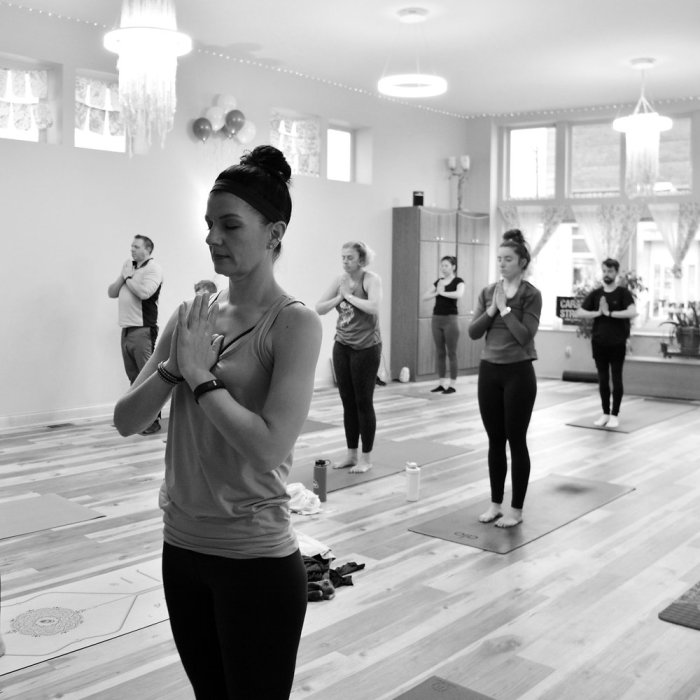
Is it against the law to sleep in your car? The answer, as with many legal questions, is a bit more complicated than a simple yes or no. While the legality of sleeping in your car depends on a variety of factors, including location, time of day, and the specific circumstances, it’s a question that has become increasingly relevant in a society where housing affordability and homelessness are growing concerns. This article delves into the legal framework, safety considerations, and societal perspectives surrounding sleeping in a car, offering insights into the complexities of this often-overlooked issue.
The legal framework surrounding sleeping in a car is a patchwork of federal, state, and local laws. Generally, sleeping in your car on public property is not illegal, but there are exceptions. For example, many cities have ordinances prohibiting overnight parking in certain areas, such as residential neighborhoods or parking lots. Sleeping in your car on private property without permission is almost always illegal. It’s also important to note that sleeping in your car while intoxicated or under the influence of drugs can result in legal consequences, including DUI charges.
Legality of Sleeping in a Car
Sleeping in your car can be a convenient option for travelers, people experiencing homelessness, or those facing unexpected situations. However, the legality of sleeping in a car varies depending on several factors, including location, time of day, and vehicle condition.
Factors Influencing Legality
The legality of sleeping in a car is primarily determined by local laws and ordinances. These regulations can differ significantly between states, counties, and even cities. Here are some factors that influence the legality:
- Location: Sleeping in a car on private property is generally prohibited without the owner’s permission. Public areas like parks, parking lots, and streets may have specific regulations regarding overnight parking or sleeping.
- Time of Day: Many jurisdictions have ordinances that prohibit overnight parking or sleeping in vehicles within certain hours, usually between 10 PM and 6 AM.
- Vehicle Condition: Some areas may have regulations requiring vehicles to be in a safe and operable condition for overnight parking, including functional lights, registration, and insurance.
- Local Ordinances: Cities and counties often have their own specific laws regarding sleeping in vehicles. It’s essential to research and understand local ordinances before parking overnight.
Examples of Illegal Situations
Sleeping in a car can be considered illegal in several situations, including:
- Private Property: Sleeping on private property without the owner’s consent is generally considered trespassing and illegal. This includes parking lots, driveways, and even residential streets if they are considered private property.
- Prohibited Areas: Certain areas may be designated as prohibited for overnight parking or sleeping, such as areas near schools, hospitals, or businesses.
- Public Nuisance: Sleeping in a car in a public area can be considered a public nuisance if it obstructs traffic, creates noise, or disturbs others.
Safety Considerations

Sleeping in your car can be a convenient option in certain situations, but it’s crucial to prioritize safety. There are inherent risks associated with sleeping in a car, and understanding these risks is essential for making informed decisions and taking appropriate precautions.
Potential Safety Risks
Sleeping in a car can expose you to various safety risks, including:
- Vehicle Theft: Cars are prime targets for thieves, especially when parked in isolated or poorly lit areas. Leaving valuables in plain sight can also attract thieves.
- Vandalism: Cars parked in secluded areas are more vulnerable to vandalism, which can range from minor damage to complete destruction.
- Exposure to the Elements: Depending on the weather conditions, sleeping in a car can expose you to extreme temperatures, rain, snow, or wind. This can lead to discomfort, illness, or even hypothermia.
- Wildlife Encounters: Depending on your location, you may encounter wild animals that could be attracted to your car or pose a threat to your safety.
- Criminal Activity: Sleeping in a car in unsafe neighborhoods can make you a target for crime, including assault, robbery, or harassment.
Safety Measures
To minimize the risks associated with sleeping in your car, it’s essential to take proactive safety measures. Here are some recommendations:
- Choose a Safe Location: Opt for well-lit, populated areas with ample visibility. Avoid secluded or deserted spots, especially at night. Parking lots with security cameras or well-lit streets are generally safer choices.
- Lock Your Doors and Windows: Always lock your car doors and windows, even when you’re inside. Consider using a steering wheel lock or other security devices for added protection.
- Use a Security System: If your car has a security system, activate it. This can deter thieves and alert you to any intrusion.
- Keep Valuables Out of Sight: Don’t leave valuables, such as electronics, cash, or jewelry, in plain sight. Store them in the trunk or a secure compartment.
- Be Aware of Your Surroundings: Pay attention to your surroundings, especially at night. If you notice anything suspicious, move to a safer location.
- Consider a Personal Safety Device: Carry a personal safety device, such as a pepper spray or a whistle, for added protection.
- Inform Someone of Your Plans: Let someone know where you’re going and when you expect to return. This way, someone will be aware of your whereabouts in case of an emergency.
Safety Checklist
Here’s a checklist to help you create a secure environment for sleeping in your car:
| Safety Measure | Action |
|---|---|
| Location | Choose a well-lit, populated area with good visibility. |
| Vehicle Security | Lock all doors and windows. Activate your car’s security system. |
| Valuables | Store valuables out of sight, preferably in the trunk or a secure compartment. |
| Personal Safety | Carry a personal safety device, such as pepper spray or a whistle. |
| Awareness | Be aware of your surroundings and trust your instincts. |
| Communication | Inform someone of your plans and expected return time. |
Public Perception and Social Norms

Sleeping in a car, while sometimes a necessity, often carries a stigma and raises concerns within communities. Public perception of this practice is shaped by a complex interplay of societal norms, stereotypes, and individual experiences.
Public Perception and Stereotypes
The act of sleeping in a car is frequently associated with homelessness, poverty, or even criminal activity. These stereotypes can be deeply ingrained in societal perceptions, leading to prejudice and discrimination against individuals who sleep in their cars. Furthermore, the media often portrays sleeping in a car in a negative light, further reinforcing these stereotypes. For example, news stories about crime or homelessness might feature individuals sleeping in their cars, contributing to a negative association with this practice.
Social Acceptability Across Communities
The social acceptability of sleeping in a car varies significantly depending on the community and culture. In some communities, particularly those with a high cost of living or limited affordable housing options, sleeping in a car might be viewed as a temporary necessity and accepted with a degree of understanding. However, in other communities, sleeping in a car might be met with disapproval, suspicion, or even hostility. For instance, in areas with strict parking regulations or limited public spaces, sleeping in a car might be perceived as a nuisance or a threat to public safety.
Consequences of Sleeping in a Car, Is it against the law to sleep in your car
Sleeping in a car can lead to various consequences, ranging from social stigma and community backlash to police intervention. Individuals who sleep in their cars might face negative judgments from neighbors, community members, or even employers. This social stigma can lead to feelings of isolation, shame, and difficulty accessing resources. Additionally, police officers might perceive individuals sleeping in their cars as suspicious, leading to questioning, citations, or even arrests, particularly if they are sleeping in prohibited areas.
Resources and Support Organizations

If you find yourself in a situation where sleeping in your car is your only option, it is crucial to know that you are not alone and there are resources available to help. Many organizations across the country are dedicated to assisting individuals experiencing homelessness or housing insecurity.
Organizations Providing Assistance
These organizations offer a range of services to support individuals facing homelessness or housing insecurity.
- The National Alliance to End Homelessness (NAEH): The NAEH is a non-profit organization that provides resources and advocacy for individuals experiencing homelessness. They offer a variety of resources, including information on housing programs, legal assistance, and access to healthcare.
- Website: https://endhomelessness.org/
- Phone Number: (202) 638-1528
- The National Coalition for the Homeless (NCH): The NCH is a non-profit organization that advocates for the rights of people experiencing homelessness and works to end homelessness. They provide resources and information on housing, healthcare, and other essential services.
- Website: https://nationalhomeless.org/
- Phone Number: (202) 638-1528
- The National Low Income Housing Coalition (NLIHC): The NLIHC is a non-profit organization that advocates for affordable housing for low-income families. They provide resources and information on housing programs, tenant rights, and affordable housing development.
- Website: https://nlihc.org/
- Phone Number: (202) 662-1530
- The Salvation Army: The Salvation Army is a non-profit organization that provides a wide range of services to individuals and families in need, including emergency shelter, food assistance, and job training.
- Website: https://www.salvationarmyusa.org/
- Phone Number: (800) SAL-ARMY (725-2769)
- The United Way: The United Way is a non-profit organization that supports a network of local charities and organizations. They provide a variety of services, including emergency shelter, food assistance, and job training.
- Website: https://www.unitedway.org/
- Phone Number: (800) 428-4200
Types of Services Offered
These organizations provide a wide range of services to individuals experiencing homelessness or housing insecurity.
- Emergency Shelter: Many organizations offer emergency shelter for individuals experiencing homelessness. These shelters provide a safe and secure place to sleep, as well as access to food, clothing, and other essential services.
- Food Assistance: Many organizations provide food assistance to individuals experiencing homelessness. This can include food pantries, soup kitchens, and meal programs.
- Job Training: Many organizations offer job training programs to help individuals experiencing homelessness find employment. These programs can provide skills training, job placement assistance, and other support services.
- Case Management: Case management services can help individuals experiencing homelessness navigate the complex systems of housing, healthcare, and other social services.
- Legal Assistance: Some organizations provide legal assistance to individuals experiencing homelessness. This can include help with eviction defense, housing discrimination cases, and other legal matters.
Concluding Remarks: Is It Against The Law To Sleep In Your Car
While sleeping in your car can be a temporary solution for some, it’s essential to understand the legal implications, safety risks, and societal perceptions surrounding this practice. Remember, if you are experiencing homelessness or housing insecurity, there are resources available to help. Reach out to local organizations that provide shelter, food, and other essential services. By understanding the complexities of sleeping in a car and seeking available resources, you can make informed decisions and ensure your safety and well-being.
FAQ
Is it illegal to sleep in my car in a parking lot?
It depends on the parking lot’s location and any local ordinances. Some parking lots have signs prohibiting overnight parking, while others may allow it with certain restrictions. It’s always best to check for signage or contact the property owner for clarification.
What if I’m sleeping in my car because I’m stranded?
If you are stranded due to a breakdown or emergency, sleeping in your car may be permitted as long as you are not violating any local ordinances. However, it’s crucial to ensure your safety and seek assistance as soon as possible.
Can I be arrested for sleeping in my car?
You may be arrested if you are sleeping in your car in a prohibited area, violating a local ordinance, or engaging in illegal activities, such as public intoxication. It’s essential to be aware of the laws in your area and avoid situations that could lead to legal trouble.





